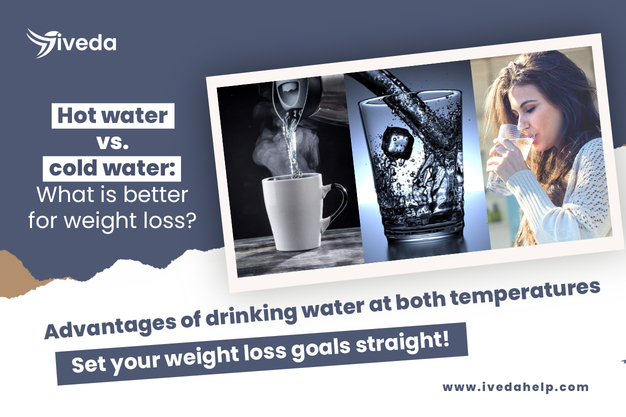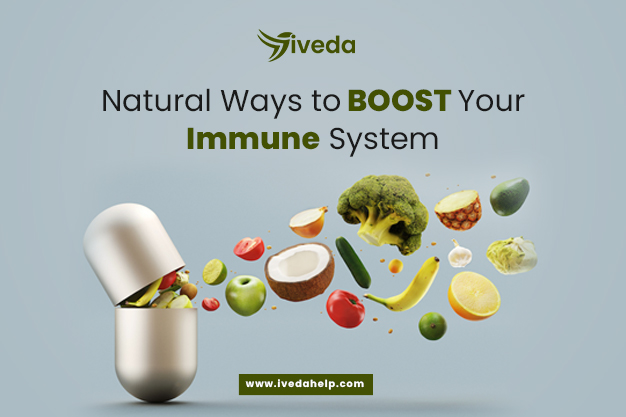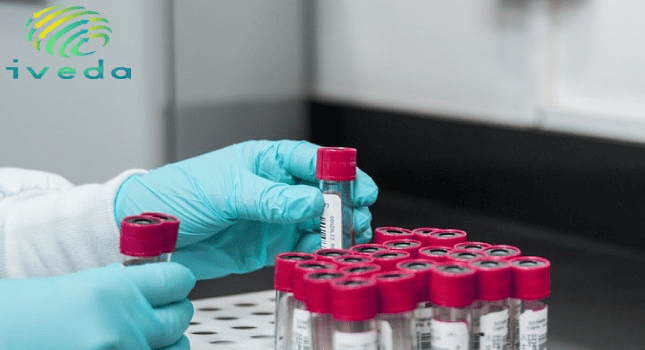How your Diet Affects your Hormones?
Natural Ways to Balance Your Hormones!
The changes in our body hormones can have a great impact on our lives. Through numerous factors such as food, water, place, temperature and much more they can be influenced. Your functioning of the body relies on how well you balance your nutrition. All that you eat affects your body. However, hormonal imbalances are usually treated with medications and regular exercise routine, the exact quantity of nutrition facilitated through the consumption of healthy balanced food that can function an important role in keeping the body in harmony.
In simple language, hormones can be called your body’s chemical messengers. Most often, every physiological function occurring in the body like metabolism, menstrual cycle, reproduction, moods or emotions, immune system and much more happens because of hormones. Once there’s a movement of hormones balance, it affects the body functioning itself. So, in that situation, how do you manage to keep it well?
From infertility to diabetes, hormonal imbalances can create problems in your body, though particular foods can help keep your hormones balanced and your body functioning properly.
FOCUS ON YOUR DIET FOR BALANCING HORMONES
Maintaining a stable, healthy nutritious diet is the simplest and most effective way to keep our hormones in check. However, the word diet may sound cliche and tasking, it is nothing but making sure you are eating the right thing. Once you practice taking healthy diet, it automatically makes you feel healthier and more energetic.
A balanced nutritious food, bland food does not mean eating boring in contrast to the famous belief, nor does it mean banning all your favourite foods. Through the perfect concept in mind, we can all time enjoy some delicious food that is great for our body as well as enjoyable to consume.
I am well aware that many of us cringe at the word vegetables but when prepared the right manner, they can be enjoyed by all in the family. Th great sources of vitamins, minerals, antioxidants and nutrients are fruits and vegetables. They are highly rich in nutrition and helps in improving hormones for better. With the motive of encouraging continuous menstruation, re-hydrates and also facilitates your body with numerous other nutrients. In the secretion of Cortisol in a human bodies caffeine and alcohol tend to cause a mild in increase in particulars. Cortisol, a hormone that is part of our fight response and is also referred to as the stress hormone. It is crucial that you cut down on caffeine and alcohol if you are going through your menopause phase. However, this will keep your cortisol level in check.
On the other part of the phase, particular kinds of food are forbidden, in the scenarios you are suffering from thyroid. Particular cruciferous vegetables such as cabbage, broccoli cauliflower, soya are found to be goitrogens if taken raw or in high quantity. Few foods such as red meat are rich in saturated fat that can be escalated the production of estrogen and can create a hormonal imbalance. It is advisable to switch to healthier versions of meat such as fish or eggs that rich in omega-3 fatty acids.
NATURAL WAYS TO BALANCE YOUR HORMONES
Not only mental and physical, hormones is the biggest cause of affecting your emotional health too. The specific chemical messengers play a major role in controlling your appetite, weight and mood among other things. Generally, your endocrine glands produce the exact quantity of every hormone required for several processes in your body. Although, hormonal imbalances have become increasingly common with with on-going modish lifestyle. Additionally, particular hormones diminish with age and some people experience a more dramatic decrease that others. Luckily, a nutritious diet and other healthy lifestyle behaviors might help improve your hormonal health and permit you to feel and outshine the best. In this blog, we’ll be sharing the natural ways to balance your hormones!
- Get Enough Protein at Every Meal
Taking a perfect amount of protein is very crucial. Protein consisting in a diet facilitates crucial amino acids that your body cannot make on its own and should be consumed every day in a way to maintain muscle, bone and skin health. Additionally, protein influences the release of hormones that keeps a control appetite and food intake. Study shows that eating protein diminishes levels of the hunger hormone ghrelin and stimulates the production of hormones that help you feel full.
What’s more, participants hunger ratings diminished by 25% more after the high protein meal as compared to the normal protein meal. In next research, women who consumed a diet consisting 30% protein experienced an increase in GLP-1 and greater feelings than when they ate a diet containing 10% protein.
What’s enough, they felt an increase in metabolism and fat burning. In order to optimize hormone health, experts recommend consuming a minimum of 20-30 grams of protein per diet.
At every meal, this is simple to do by including a serving of these high-protein foods.
- Engage in Regular Work-out and Exercise
Hormonal health can be strongly influenced through physical activity. A major advantage of exercise is its ability to diminish insulin levels and boost insulin sensitivity. Insulin is a hormone that innumerable functions. From the bloodstream, one is permitting cells to take up sugar and amino acids that are used for energy and maintaining muscle.
Although, a small insulin goes a long way. Too much can be absolute vulnerable. High level of insulin have been interconnected to inflammation, heart disease, diabetes and cancer. More to this, they are attached to insulin resistance, a condition in which your cells don’t respond properly to insulin’s signals.
Many types of physical activity have been found to increase insulin sensitivity and diminish insulin levels, involving aerobic exercise, strength training and durable exercise
Exercise increased participants insulin sensitivity and levels of adiponectin in a 24 week study of fat women, a hormone that has anti-inflammatory effects and helps function metabolism.
Your muscle maintaining hormones may get boosted by being physically active that declines with age, like testosterone and growth hormone.
For people who fail to perform vigorous exercise, also regular walking might increase those hormone levels, potentially improving strength and quality of life. However, a combination of resistance and aerobic training tends to facilitate the best consequences, engaging in any type of physical activity on a continuous basis in advantageous.
- Avoid Sugar and Refined Carbs
Sugar and refined carbs have been connected to a number of health issues. In fact, preventing or minimizing these foods might be instrumental in optimizing hormone function and avoiding obesity, diabetes and other diseases.
Research have consistently shown that fructose can boost insulin levels and promote insulin resistance, specifically in overweight and obese people with pre-diabetes or diabetes.
More importantly, fructose makes up at least half of most types of sugar. This consists innate forms such as honey and maple syrup, in addition to high-fructose corn syrup and refined table sugar.
In a research, people with pre-diabetes experienced same increase in insulin levels and insulin resistance whether they consumed 50 grams of honey, sugar or large amount of corn syrup.
More to this, high food intake in refined carbs such as white bread and pretzels might promote insulin resistance in a large portion of adults and adolescents. In connection to that, following a low-or moderate carb diet based on whole foods might reduce insulin levels in overweight and obese people with pre-diabetes and other insulin-resistant conditions such as polycystic ovary syndrome.
- Learn to Manage Stress
Your hormones can be devastated through stress. The two major hormones affected by stress are Cortisol and adrenaline which is also called epinephrine. What is Cortisol? Cortisol, commonly known as the stress hormone as it helps your body cope with stress for a longer period of time. Adrenaline is a kind of hormone that facilitates your body with a surge of energy to respond to immediate danger.
Although, long time ago, approx hundred years ago, when these hormones were mainly triggered by threats from predators, in the present time they are usually triggered by people’s busy often overwhelming lifestyles.
Unluckily, chronic stress causes cortisol levels to remain elevated, which can lead to excessive calorie intake and obesity, involving increased belly fat. Uplifted adrenaline levels can cause high blood pressure, rapid heart rate and anxiety. Although, these symptoms are usually fairly short-lived because, unlike cortisol adrenaline is less likely to become chronically elevated.
Studies shows that you might be able to lower your cortisol levels by engaging in stress-reducing techniques such as meditation, yoga, massage and listening to relaxing music.
A review of studies from 2005 records found that massage therapy not only diminished cortisol levels by an average of 31% but also increased levels of the mood boosting hormone serotin by 28% and dopamine by 31% on average. Give a try to devote for less than 30 minutes per day to stress-reducing activities, even if you don’t feel you have the time.
- Do Not Overeat
Hormones in your body can get distracted by eating very little or eating too much which can however lead to weight problems. Overeating is reflected to increase insulin levels and diminish insulin sensitivity specifically in overweight and obese people who are insulin resistant. In one research, insulin resistant obese adults who intake 1300 calorie meal experienced near about two times to increase in insulin as lean people and metabolically healthy obese people who consumed an identical meal.
On the other part, cutting down your calorie intake too much can boost the levels of the stress hormone cortisol that is known to promote weight gain when it is elevated.
One research found that restricting food intake to less than 1200 calories per day led to increased cortisol levels. Knowingly, a study from 1996 also suggests that very low calorie diet could potentially trigger insulin resistance in some people, a cause you may expect to observe in people with diabetes.
Consuming within your own personal calorie range can help you maintain hormonal balance and a healthy weight.
- Consume Eggs Anytime
On this planet, eggs are one of the most nutritious meals.
They’ve been reflected to advantageously affect hormones that functions food intake, including lowering levels of insulin and ghrelin, and boosting PYY. In a research, men had lower ghrelin and insulin levels after consuming eggs at breakfast than after taking a bagel in the morning breakfast. Additionally, they experienced fuller and ate less calories over the next day after eating the eggs. Most Importantly, the positive effects on hormones tends top occur when people consume both the egg yolk and egg white. For instance, next research found that eating whole eggs are part of a low-carb diet increased insulin sensitivity and enhanced numerous heart health markers more than a low carb diet that included only egg whites.
Most research have looked at the effects of consuming eggs at breakfast due to when people generally intake them. Although, these nutrition powerhouse can be eaten at any meal and hard boiled eggs make a great portable snack.
- Consume a High-fiber Diet
Fiber, specifically the soluble kind , is a crucial component of a healthy diet.
Research have found that it boosts insulin sensitivity and boosts the hormones production that make you feel full and contented.
However, soluble fiber seems to produce the robust effects on appetite and eating, insoluble fiber might also play a role.
One research in overweight people found that taking a type of soluble fiber referred to oligofructose raised PYY levels, and in-taking the insoluble fiber cellulose seemed to raise GLP-1 levels.
Both types of fiber caused a diminish in appetite.
To save against insulin resistance and overeating, ensure you take fiber-rich foods on a regular basis.
The Bottom Line
In every aspect of your health, your hormones are involved. You require them in very specific amjounts for your body to program optimally. The imbalance in your hormones might increase the risk of obesity, diabetes, heart disease and other health issues. Apart from the fact that aging and other factors are beyond your control, there are many steps you can take to help your hormones function in a perfect way. Taking nutritious foods, exercising on a continuous basis and engaging in other healthy behaviors can go a long way toward enhancing your hormonal health.

























































































